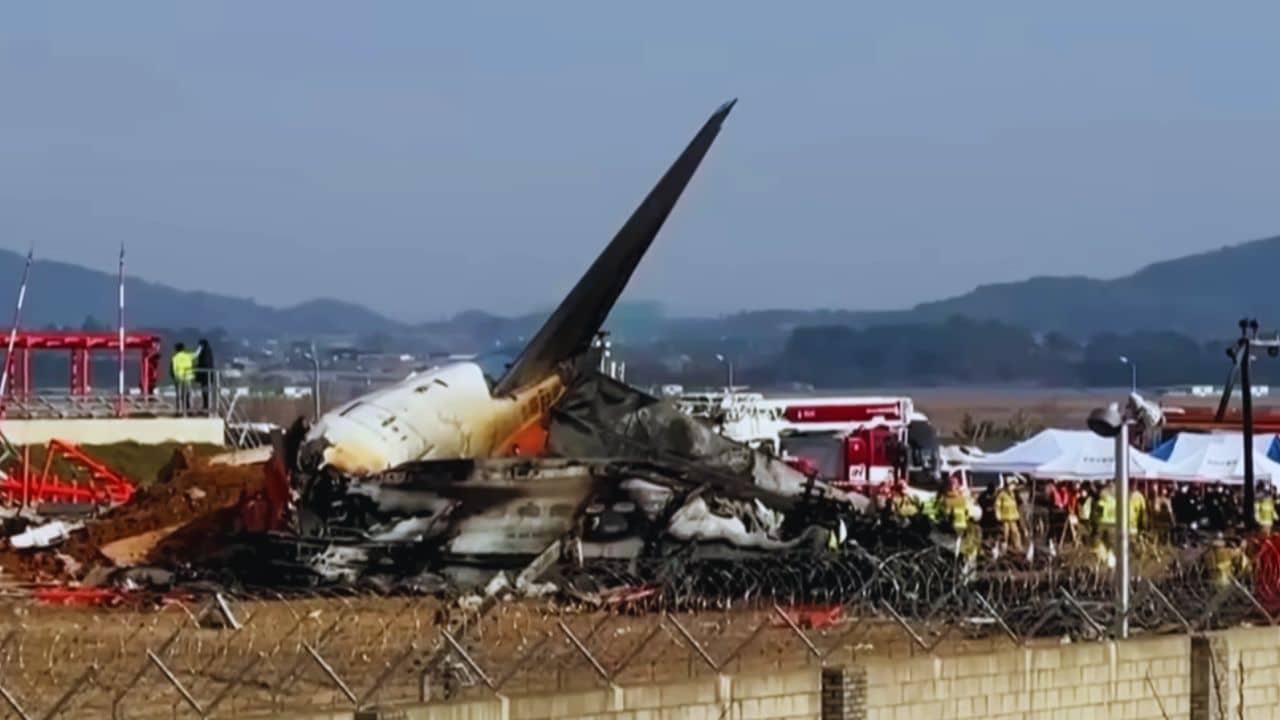South Korean authorities confirmed on Wednesday morning that all 179 victims of the tragic Jeju Air plane crash have been identified. The crash, which involved Jeju Air Flight 2216, has left the nation mourning as families prepare to visit the crash site to pay their respects later today.
Jeju Air Flight 2216, a Boeing 737-800 aircraft, was en route from Bangkok, Thailand, and was preparing to land just before 9 a.m. local time when disaster struck. According to the South Korean Ministry of Land Infrastructure and Transport, the control tower had issued a bird strike warning moments before landing. Shortly after, the pilot sent a distress signal. The plane veered off the runway and crashed into a wall, resulting in the deaths of 175 passengers and four crew members.
Miraculously, two crew members survived the crash—a man and a woman—who are now recovering in hospitals in Seoul. Both have non-life-threatening injuries, and their recovery is being closely monitored.
Support for Victims’ Families
Authorities have organized for victims’ families to visit the crash site today to pay their respects. This marks the first opportunity for loved ones to gather at the location of the tragedy. The identification process, which concluded this morning, provided some closure to grieving families.
International and Domestic Investigation Efforts
A comprehensive investigation into the crash is underway. Alongside South Korean transportation officials, the United States has sent a specialized team to assist in determining the cause of the accident. The team includes experts from the Federal Aviation Administration (FAA), Boeing, and CFM International, as well as three representatives from the U.S. National Transportation Safety Board (NTSB).
In a statement, the NTSB announced that additional investigative staff are ready to support the process as needed, with expertise spanning various specialties such as aircraft recorders, powerplants, and survival factors.
South Korean authorities are also extending their investigation to a fleet of 101 Boeing 737-800 aircraft currently in operation across six local airlines. Officials have not disclosed whether these planes will face any immediate operational restrictions during the investigation.
Questions Around the Bird Strike Warning
While investigations continue, much attention has focused on the bird strike warning issued before the crash. Experts are working to determine whether the warning and subsequent bird activity played a role in the tragedy, or if other mechanical or human factors contributed. The Ministry of Land Infrastructure and Transport has yet to release a detailed timeline of events or the contents of the plane’s black box recorders.
Global Aviation Safety Under Scrutiny
The crash has reignited conversations about aviation safety, particularly regarding bird strikes and their potential to endanger modern aircraft. Boeing’s 737-800 model, known for its reliability, has faced heightened scrutiny in light of the accident.
Survivors and Recovery
The two survivors—both crew members—are being hailed for their resilience. Authorities have expressed relief at their survival but emphasized the importance of uncovering the full details of the crash to prevent similar tragedies in the future.
The Jeju Air plane crash has sent ripples of grief through South Korea and beyond. As families gather at the crash site today, the nation stands in solidarity with them, mourning the lives lost and calling for answers. With international support and a thorough investigation underway, authorities are determined to uncover the truth behind this devastating incident.
The Information is Collected from ABC News and BBC.



































